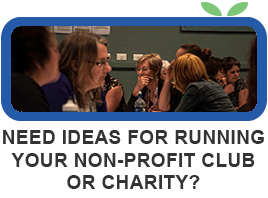Last updated February 17, 2017
Having your cause highlighted in the media is an effective way to raise the profile of your organisation, but while most non-profits are well practiced at writing press releases about their special events, many organisations struggle to find the newsworthy stories in their everyday work.
Repetition builds reputation, so ideally you should send a press release to local media at least once a month. Use these five good ideas to help you find your newsworthy angle.
1. Relevance to a Hot Topic
At any given time, there will be a ‘hot topic’ in the media. It may be to do with a politic announcement such as the budget, it could be related to a recent tragedy or high profile crime, or perhaps something as wide reaching as the weather. By browsing your local newspaper or online news source and taking note of the most reported stories, you will easily be able to identify the ‘hot topic’ of the day.
Regardless of the topic, look for ways that it can be related to your organisation or cause. For example, how did the budget announcement affect your organisation or the clients you serve? How are your clients affected by house prices going up or down? How has a recent tragedy highlighted your work in the community and the needs you meet?
The easiest way to share the ‘hot topic’ spotlight is to comment on an article which has already been published. Either make comment directly to the reporter involved or send a letter to the editor. In either case, make sure you let them know how deeply you are involved in the issue, and make yourself available for further comment as developments in the topic or issue occur
2. Out-of-the-Ordinary Activity
Because you spend so much time in your everyday work, it is easy to take what you do for granted and assume that everyone experiences what you do. It isn’t the case.
Mentally walk through your organisation and look for things that could be considered out-of-the-ordinary for most people or organisations. Perhaps you have 3 generations from one family all volunteering at the same time. Maybe you run some of your programmes using a completely different model to everybody else. Or perhaps your organisation has taken part in some research with some out-of-the-ordinary results. All of this is newsworthy, particularly for local media.
3. Celebrity Involvement
Nothing gets media attention faster than a celebrity, so it makes sense to have one on your side. If you don’t have a celebrity ambassador already, keep an eye out for one who has a natural affinity with your cause. Perhaps one of their family members has benefited from your services, or maybe they have experienced the type of challenges your organisation helps others overcome. By lending their name and face to your cause, they can dramatically increase your media stickiness.
4. The ‘st’ factor
Looking for the ‘st’ factor in your organisation is easy – you are simply looking for anything that is the first, last, biggest, smallest, longest, shortest, best or worst. In fact, anything that ends in ‘st’ represents a milestone of sorts and milestones are newsworthy.
If you can’t find a ‘st’ factor, think about what milestones you could work towards achieving and report on those. You could let the media know when you have served your 100th client for the year, or when 50 families have been affected by your programmes. Consider what percentage of the community you hope will use your services and celebrate when that happens. Put your own milestones in place so you can grab the spotlight and highlight your success.
5. Awards and Accolades
Winning an award of any sort deserves some attention and the bigger the award, the more attention you are likely to receive. Of course in order to benefit from the award spotlight – you first need to enter your volunteers, staff and organisation into the awards process. And there are plenty of awards to choose from.
Check out the TrustPower Volunteer Awards, New Zealander of the Year, or your local Civic Awards. Most Business Awards also have a non-profit category which receives a great deal of media attention. If you know of other awards that non-profits are eligible to enter, please email rosie@exult.co.nz and let her know.
Kerri Tilby-Price
Kerri is a Facilitator / Trainer with Exult and has over 20 years experience working in and for the community sector.
If you think this article would be useful for your members, you are welcome to use it on your website or in your newsletter. We just ask that you let us know where it is being used, and that you acknowledge our website at the bottom of the article. If you are using the article online, please include a link to our homepage.




